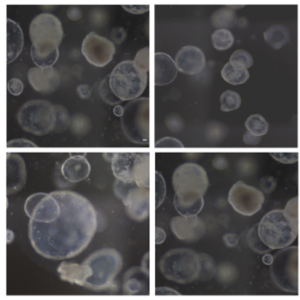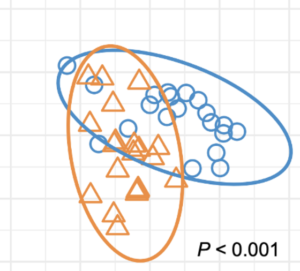Second trimester short cervix is associated with decreased abundance of cervicovaginal lipid metabolites
Background: A short cervix is a risk factor for preterm birth. The molecular drivers of a short cervix remain elusive. Metabolites may function as mediators of pathologic processes.
Objective: We sought to determine if a distinct cervicovaginal metabolomic profile is associated with a short cervix (<25 mm) to unveil the potential mechanisms by which premature cervical remodeling leads to a short cervix.
Study design: This was a secondary analysis of a completed prospective pregnancy cohort. Cervicovaginal fluid was obtained between 20 and 24 weeks’ gestation. The participants selected for metabolomic profiling were frequency-matched by birth outcome and cervicovaginal microbiota profile. This analysis included 222 participants with cervical length measured. A short cervix was defined as one having length <25 mm, as measured by transvaginal ultrasound. Unpaired t-tests were performed with a Bonferroni correction for multiple comparisons.
Results: There were 27 participants with a short cervix, and 195 with normal cervical length. Of the 637 metabolites detected, 26 differed between those with a short cervix and those with normal cervical lengths; 22 were decreased, of which 21 belonged to the lipid metabolism pathway (all P<.000079). Diethanolamine, erythritol, progesterone, and mannitol or sorbitol were increased in the cases of short cervix. Among participants with Lactobacillus-deficient microbiota, only diethanolamine and mannitol or sorbitol differed between short cervix (n=17) and normal cervical length (n=75), both increased.
Conclusion: A short cervix is associated with decreased cervicovaginal lipid metabolites, particularly sphingolipids. This class of lipids stabilizes cell membranes and protects against environmental exposures. Increased diethanolamine-an immunostimulatory xenobiotic-is associated with a short cervix. These observations begin to identify the potential mechanisms by which modifiable environmental factors may invoke cell damage in the setting of biological vulnerability, thus promoting premature cervical remodeling in spontaneous preterm birth.
Visit full article page:
https://www.sciencedirect.com/science/article/abs/pii/S0002937822003106

